Prodigal Scot Clark Laidlaw sets sights on Edinburgh
- Published
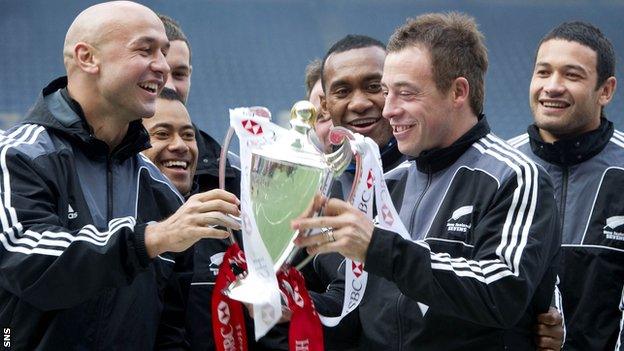
Clark Laidlaw, right, celebrates with New Zealand Sevens captain, DJ Forbes, after winning the Sevens World Series
European Challenge Cup: London Irish v Edinburgh |
|---|
Venue: Madejski Stadium, Reading Date: Saturday, 12 December Kick-off: 15:00 GMT |
Coverage: Report and reaction, BBC Sport Online |
From the boardrooms and conference suites of European rugby's elite, to the pubs, bars and clubhouses lubricating its supporters, the Rugby World Cup sparked a chastening bout of communal introspection.
For the first time in its history, this hemisphere had no representation in the tournament's final four.
One by one, the Six Nations fell by the wayside - beaten, bludgeoned and bamboozled by the merciless wizardry and fortitude of the antipodeans, South Africans and Argentines.
This southern supremacy is no novel concept, but never before has it been felt so keenly, so woundingly close to home.
There is a Scot, a Borderer and a product of one of the nation's most eminent rugby families who has borne witness to the roots of this dominance, how the best assemble and administrate their game, and how the global superstars of tomorrow are shaped.
Raised in the rugby-obsessed town of Jedburgh, cousin to Scotland captain Greig and son of Grand Slam-winning great Roy, Clark Laidlaw represented the national sevens outfit, and the now-defunct Border Reivers.
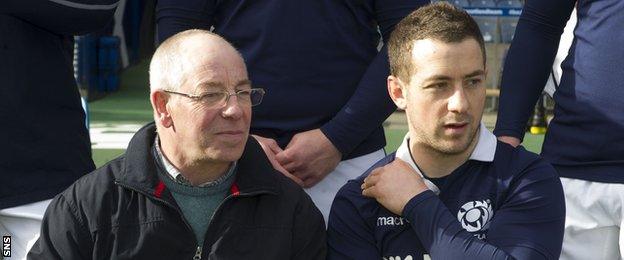
Legendary scrum-half Roy Laidlaw is Clark's father, while Scotland skipper Greig is his cousin
With his playing days numbered, he embarked on a seven-year coaching voyage that took him some 11,000 miles from the post of rugby development officer at East Lothian Council to Taranaki, New Zealand, on the North Island's western jut.
There he would ascend rapidly to the Kiwi sevens set-up, and the post of assistant coach at the Hurricanes, home to a boatload of All Blacks champions in New Zealand's capital.
"Rugby is rugby, but athletes in the southern hemisphere are brought up in a different way," he begins.
"What I mean by that is, children and young players play a multitude of sports, they're very active as children and young adults, which gives them a really good base to kick on.
"When they decide to specialise in a sport it's usually because they enjoy it and they're good at it.
"If you take rugby in New Zealand, by the time boys specialise, they have a great base of athleticism and spatial awareness and that comes through in the way they're able to play - especially in terms of attacking mindset."
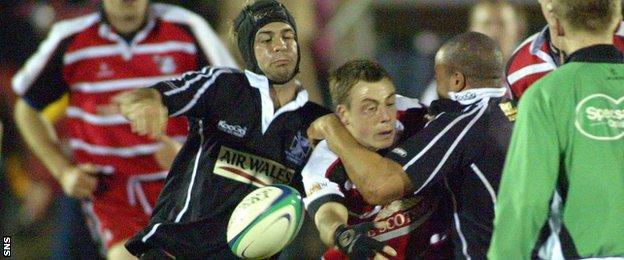
Clark Laidlaw played for a Border Reivers outfit that included Glasgow Warriors boss, Gregor Townsend
Ploughing a furrow
Laidlaw, still a few years short of his 40th birthday, grafted under several Kiwi chieftains, including fabled sevens boss Sir Gordon Tietjens.
He studied each keenly, yet arguably achieved most when imprinting his own ideals.
"I certainly think we can allow our players to make mistakes and allow our young players to really find their own way at times," he continues.
"There are principles within the game and skills you have to get right, but a lot of the time, having your own little spin on things is actually what makes the difference.
"I was brought up here - we're certainly a very rigid society at times, there are a lot of rules and regulations in general, not just in rugby.
"Sometimes I think we need to relax a wee bit and let people find their own way, whether it's climbing a tree at school, or finding a different way to pass a rugby ball.
"There's a lot of pressure on young players to play bloody well over there; I'm not sure our expectations here are high enough."

Laidlaw coached deadly All Blacks trio, Julian Savea, Ma'a Nonu and Conrad Smith at the Hurricanes
End of an era
Laidlaw's Hurricanes tenure culminated in July with a gut-wrenching defeat in the Super Rugby final to Otago's Highlanders.
The 'Canes, in-form, on Wellington soil, were much-fancied, but completely outplayed.
And All Blacks stalwarts Ma'a Nonu, Conrad Smith and Jeremy Thrush, with over 350 appearances between them, departed the franchise without a championship.
"It's a wee bit different to coaching at Jed!" Laidlaw joshes with a deadpan streak that is oh-so-Borders.
"When you're coaching some of the best rugby players in the world, it's not about the coach. They've got as many ideas about how to run a play, how to change a running line, how to manipulate a defence as me, and my job, once we come up with those plans, is to make us accountable.
"The final was tough, probably a lot tougher for the players - they put a lot more blood, sweat and tears into the jersey than me."
A blank canvas
After that showpiece agony, Laidlaw returned to the UK, one prong of a trio of New Zealand-based coaches charged with revitalising London Irish, a club rich in promise but languishing in in the Aviva Premiership's lower reaches for four years.
Alongside ex-Blues assistant Grant Doorey, he is a lieutenant of new boss Tom Coventry, formerly of the Chiefs.
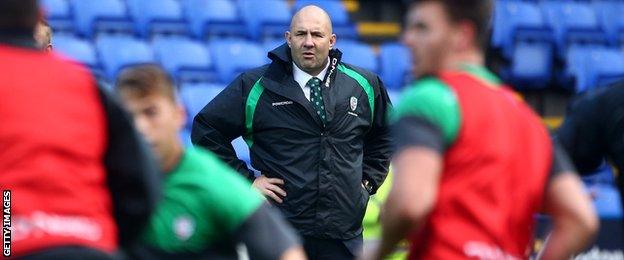
Tom Coventry has taken charge at London Irish
"People think when they see three Super Rugby coaches arriving in England they're going to be a silver bullet," he asserts.
"There's no such thing. It's attention to detail, and it's work ethic and it's time. You need to work bloody hard for a long time with detail to get improvements.
"We're not Bath or Saracens right at the top, that's what we aspire to.
"What appealed to all three of us was an opportunity to come to a club and really make our own mark. If it's a really established club, it's a different type of challenge; it's difficult as a coach to really influence it."
European vengeance
Laidlaw welcomes a familiar foe this weekend, his Exiles battling Edinburgh in the first of a European Challenge Cup double-header, Irish having been knocked out of this competition at the quarter-final stage last season by the same adversary.
"They've got a very strong pack and they've got a good mix with some of the younger backs," he says of Saturday's opponents.
"A big part of this competition will be the double-headers."
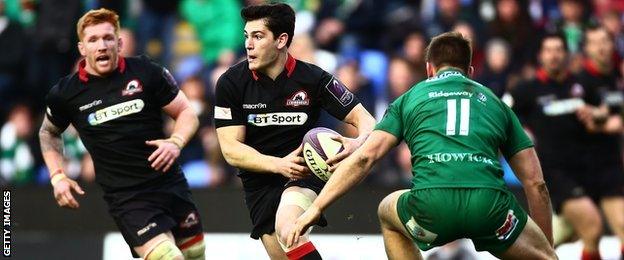
London Irish met Edinburgh in the quarter-final stage of last season's competition
Laidlaw sees the shared traits of the Borderer and the Kiwi, the all-consuming thirst for rugby, the honest toil and the unabashed "one-eyedness", but concedes the two differ drastically in many respects.
Patriarch of a "mongrel mob", with three daughters born in Scotland, New Zealand and England respectively, could he foresee a homecoming of sorts in the not-too-distant future?
"I went to New Zealand for one year and ended up there for seven - who knows what the future holds?" he says.
"If one day the opportunity comes up for me and my family to get close to home, you never know, but ultimately that's probably a wee bit down the track."
- Published10 December 2015
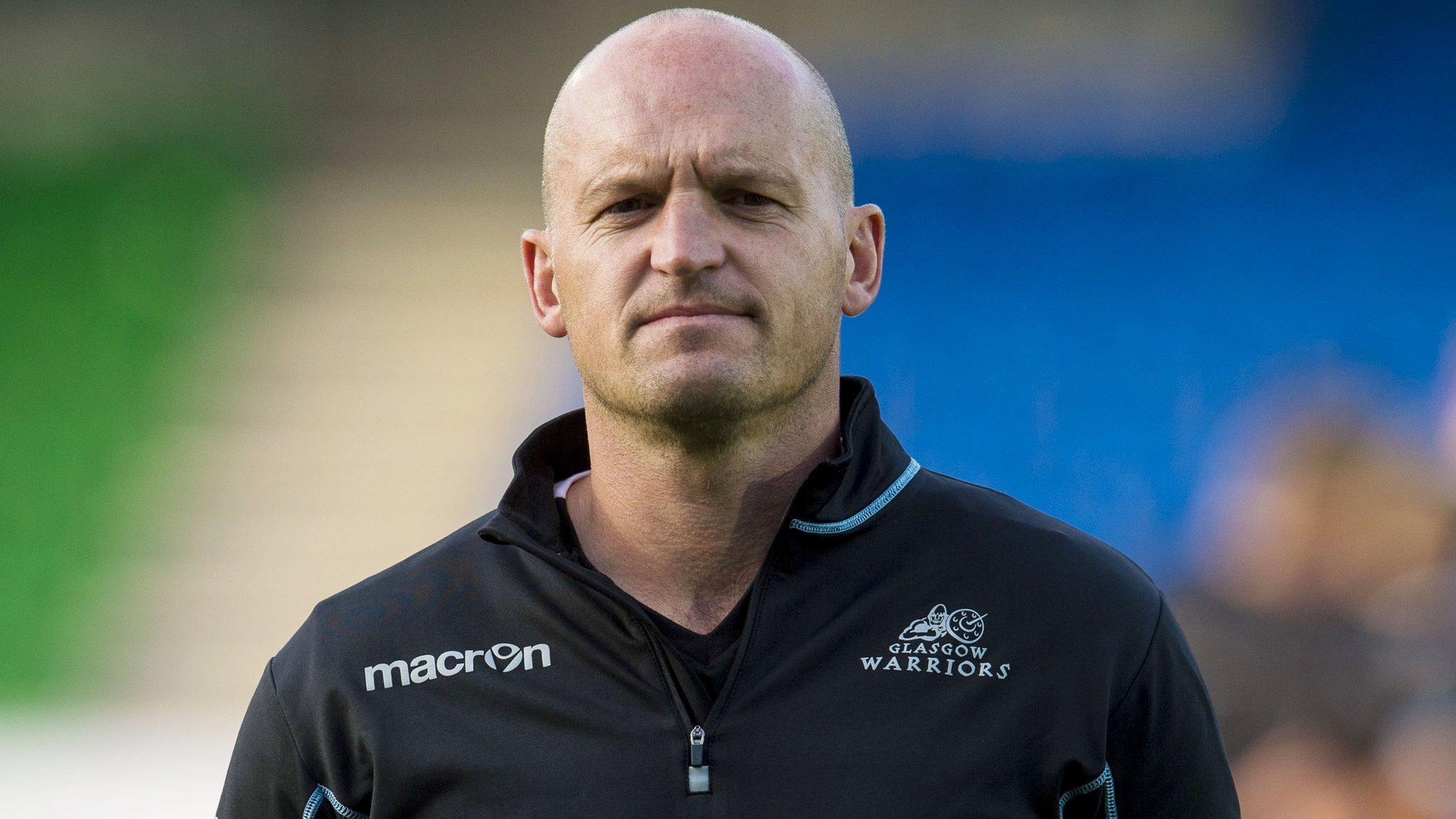
- Published9 December 2015
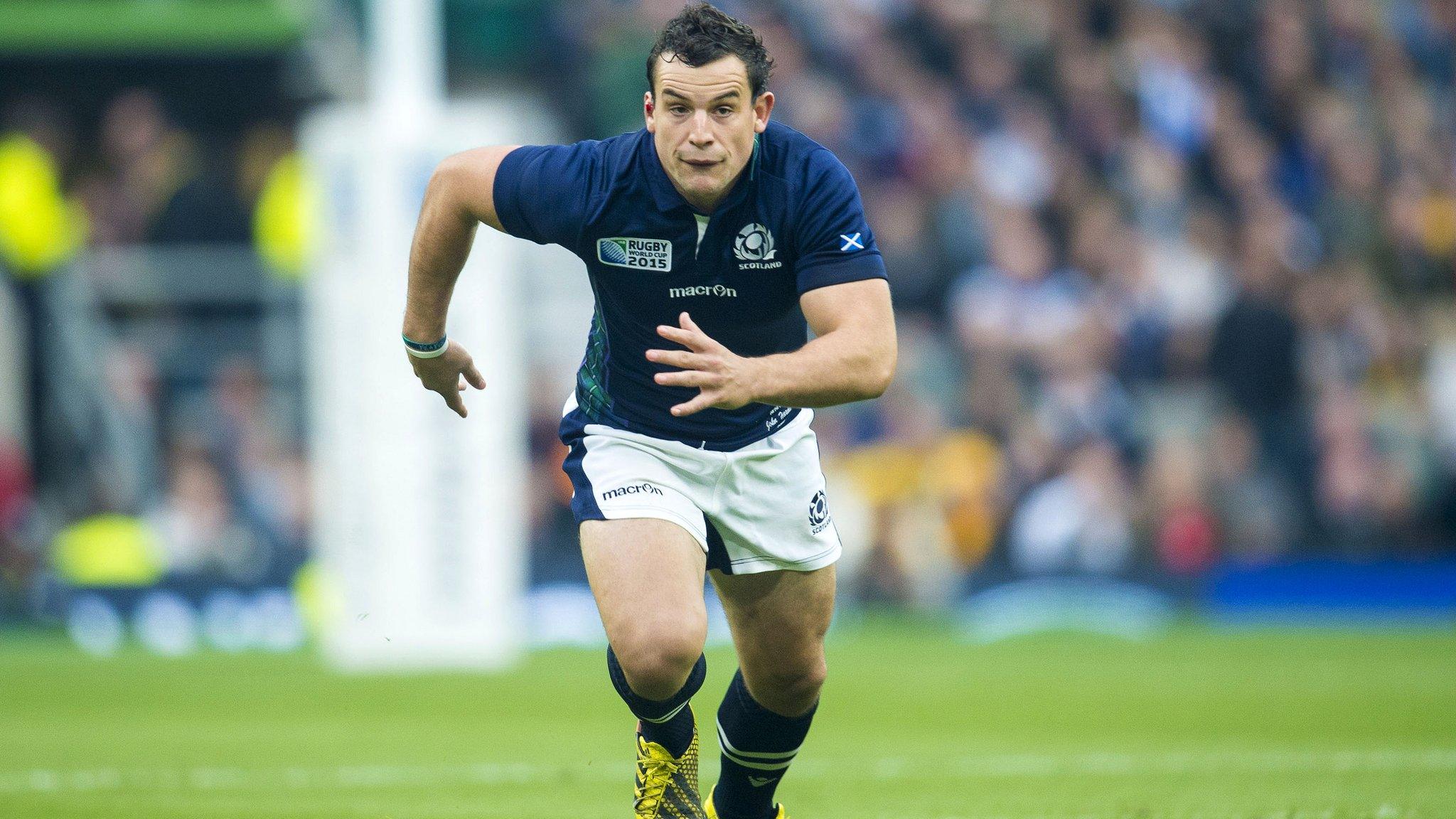
- Published4 December 2015
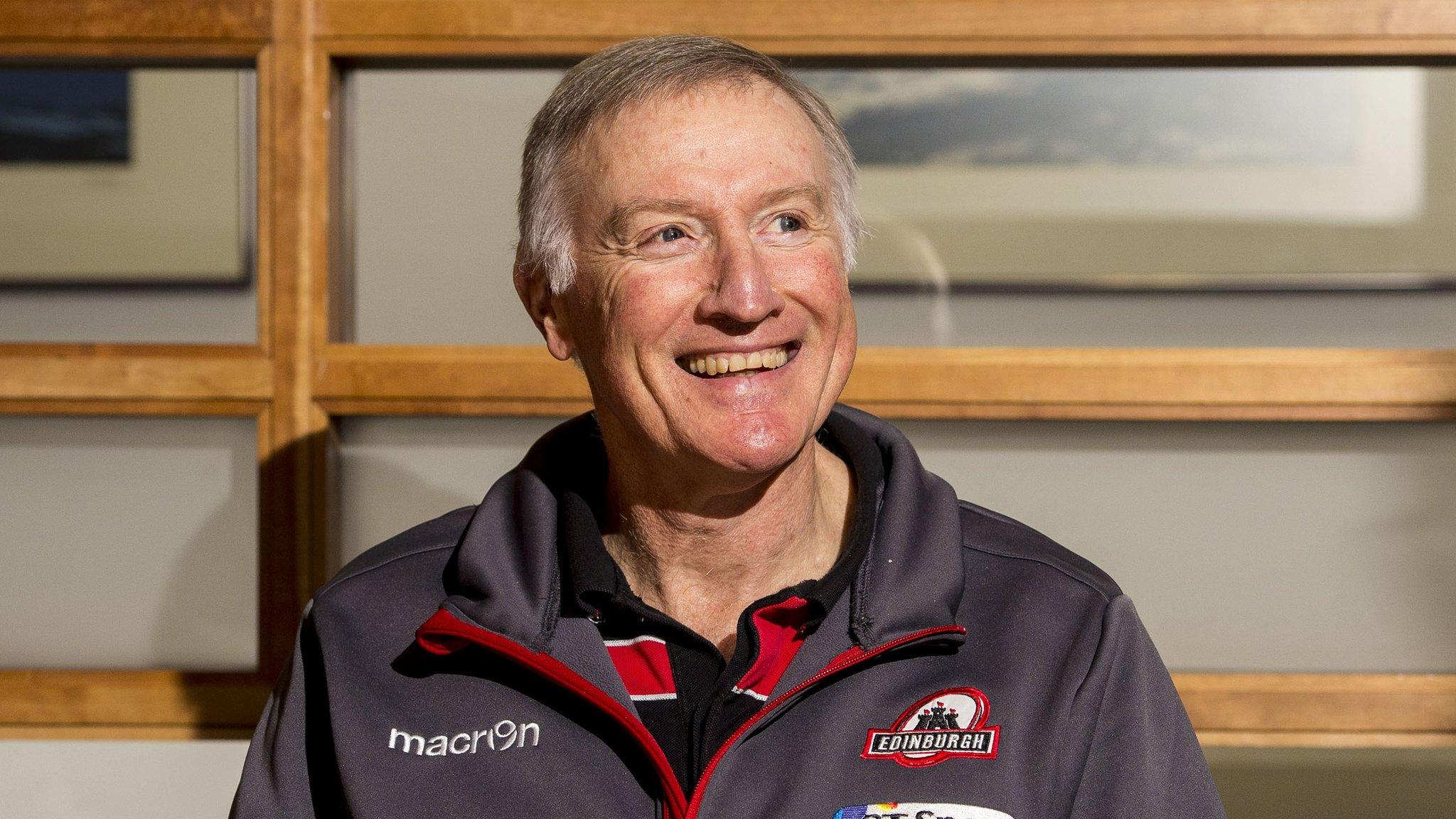
- Published14 September 2016
